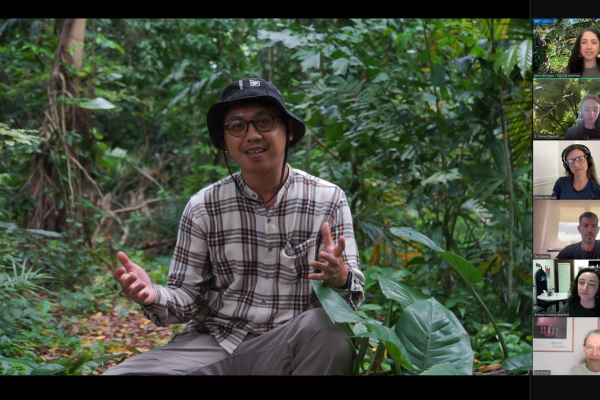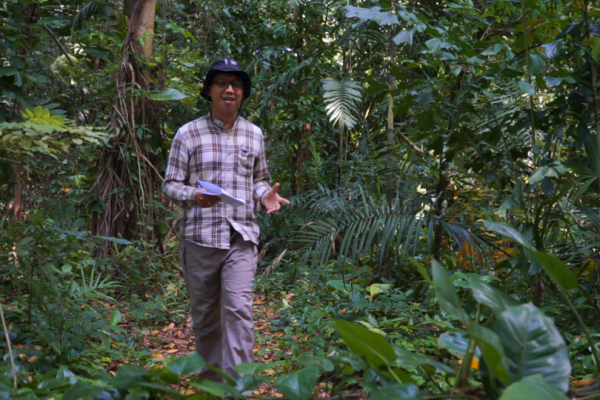Yogyakarta, May 15, 2025 – Akbar Reza, a lecturer from the Ecology and Conservation Laboratory at the Faculty of Biology, Universitas Gadjah Mada (UGM), was invited as a speaker in the international discussion session “Live from the Field: Restoring Tropical Forests”. The event was organized by the Organization of Biological Field Stations (OBFS) in collaboration with the OCELOTS (Online Content for Experiential Learning of Tropical Systems) network, the Center for Environmental Inquiry at Sonoma State University, and funded by the National Science Foundation (NSF).
This session brought together researchers and academics in the field of ecology from various countries including Costa Rica, Hawai’i, Ecuador, and Indonesia to share practices, challenges, and innovative approaches to tropical forest ecosystem restoration through interactive video presentations. The event is part of The Virtual Field, an international initiative developed during the pandemic to provide virtual field experiences for biology students around the world.
Attended by nearly 80 students from universities across tropical countries, Akbar presented the implementation of an online learning module on ecosystem restoration that he has integrated into undergraduate ecology courses at UGM. This effort is supported by a grant from the NSF through the OCELOTS Faculty Mentoring Network program. The module aims to enhance context-based learning focused on tropical ecosystems through open and collaborative online methods.
The discussion also featured Dr. Becky Ostertag from the University of Hawai’i at Hilo, who spoke about functional trait-based restoration approaches, and Dr. Rakan A. Zahawi, Executive Director of the Charles Darwin Research Station, who highlighted the effectiveness of tree cluster planting as a forest recovery strategy.
The session was moderated by Brittany Cavazos, Assistant Professor of Biology at Stonehill College, Massachusetts, and Miriam San José, a researcher at the Charles Darwin Research Station. It was streamed live from Las Cruces Biological Station in Costa Rica and the UGM Biological Forest in Indonesia.
“From this event, I learned that tropical forest restoration is not just about ecological techniques, but also about social engagement, education, and cross-regional knowledge sharing,” said Akbar. “The opportunity to compare Indonesia’s restoration context with those of Hawai’i and Costa Rica has provided new and valuable perspectives for both myself and my students.”
The “Live from the Field” program not only offers a global learning experience for students but also provides teaching guides, pre-session reading materials, and session recordings that can be used asynchronously by lecturers and educators around the world. More information is available at thevirtualfield.org and ocelots.nrem.iastate.edu.



